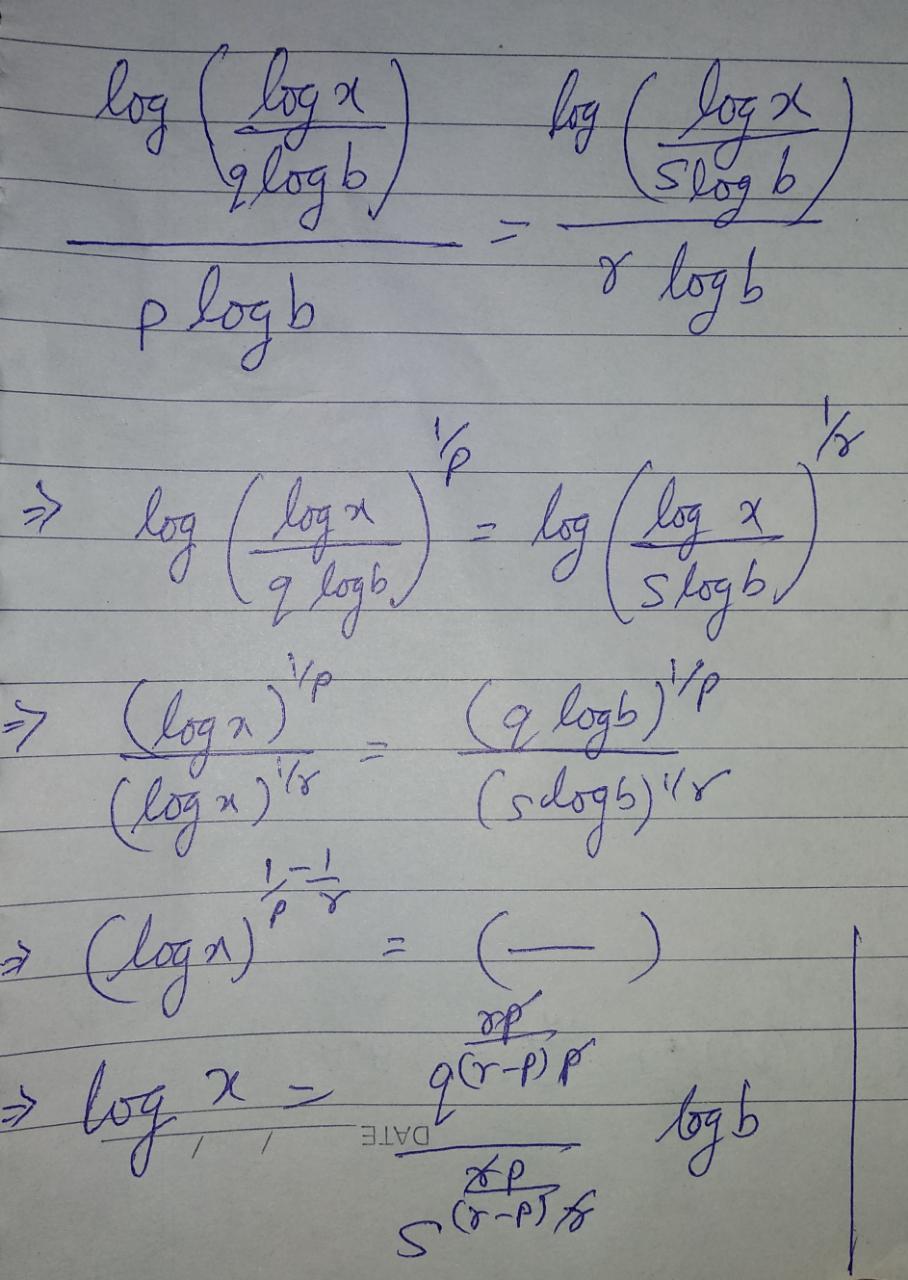Juggling Logs
Suppose
lo g b p ( lo g b q x ) = lo g b r ( lo g b s x )
for positive numbers p , q , r , and s such that p < r .
Which of the following is the best solution for x ?
This section requires Javascript.
You are seeing this because something didn't load right. We suggest you, (a) try
refreshing the page, (b) enabling javascript if it is disabled on your browser and,
finally, (c)
loading the
non-javascript version of this page
. We're sorry about the hassle.
3 solutions
 in the end again cancelling both side logs we will get value of x
in the end again cancelling both side logs we will get value of x
Make use of the property : logarithm of a to the base b is log(a)/log(b). Then a few algebraic steps lead to the answer.
Let x = b n . Then
lo g b p ( lo g b q x ) = lo g b r ( lo g b s x )
lo g b p ( lo g b q b n ) = lo g b r ( lo g b s b n )
lo g b p ( lo g b q b q q n ) = lo g b r ( lo g b s b s s n )
lo g b p ( q n ) = lo g b r ( s n )
( q n ) r = ( s n ) p
n = s p / ( r − p ) q r / ( r − p )
So x = b n = b s p / ( r − p ) q r / ( r − p )